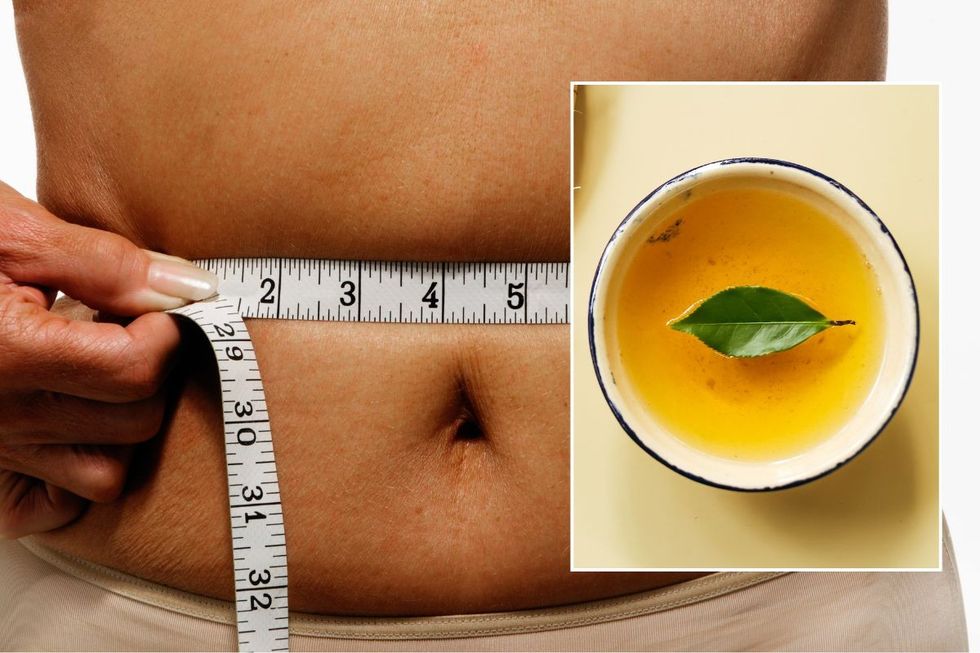Nutritionist names hot drink that could help 'torch' belly fat with 'measurable' results in weeks

Tea may serve as a valuable supplement to support healthy weight management, but should not be viewed as a standalone solution for visceral fat reduction
Don't Miss
Most Read
Latest
Scientific research confirms that green tea can help reduce visceral fat when consumed regularly, according to nutrition experts.
Adam Gilbert, a certified nutrition coach, stated that "green tea isn't just another health fad, it's backed by real research showing measurable visceral fat loss".
The evidence points to a specific threshold for effectiveness, with Gilbert explaining that studies demonstrate drinking at least 500mg of green tea extract daily for 12 weeks produces "noticeable change of real body weight and BMI reductions".
This translates to approximately three to four cups of quality green tea per day, according to the founder of MyBodyTutor.

EGCG supports weight loss by accelerating metabolism
|GETTY
The key to green tea's fat-burning properties lies in a compound called EGCG (epigallocatechin gallate).
Gilbert noted that "one cup of brewed green tea contains 200 to 300mg of this potent antioxidant, which does double duty - protecting your cells while torching fat".
"[It] works by cranking up your metabolism and helping your body break down fat more efficiently by boosting fat-burning hormones and blocking enzymes that slow fat breakdown," Gilbert explained.
The compound increases resting metabolic rate, meaning calories continue burning even during periods of inactivity.
But the optimal dosage for visceral fat reduction requires consuming approximately 600mg of catechins daily, which equates to three to four cups of quality green tea.
Gilbert also emphasised that consistency is crucial: "It's better to treat green tea like a daily supplement, not an occasional drink. You need that consistent catechin exposure to trigger the fat-burning mechanisms."
Clinical trials have shown that maintaining this intake level for at least 12 weeks produces significant visceral fat area reduction.
However, Gilbert cautioned that "you cannot rely on drinking green tea alone for significant weight loss".
He stated: "Combining it with exercise creates a synergistic effect - the EGCG enhances fat oxidation during workouts while the exercise amplifies the metabolic boost."
This combination creates what Gilbert describes as "a metabolic accelerator that works 24/7, especially when you pair it with smart nutrition and regular movement".
LATEST DEVELOPMENTS

The key to green tea's fat-burning properties lies in a compound called EGCG
|GETTY
Dr Masarat Jilani from Jude offered a more measured perspective on the evidence.
"There is some evidence, particularly from small-scale clinical trials, that regular consumption of green tea may have a modest effect on reducing visceral fat," Dr Jilani explained.
So, while evidence suggests that green tea demonstrates independent fat loss benefits, both experts stress that green tea alone isn't sufficient for substantial weight loss.
What's more, the mild acidity of green tea may also contribute to acid reflux in some individuals, with Dr Jilani recommending a moderate approach: "One to two cups a day is sufficient as part of a healthy, balanced diet."
High intake can also lead to caffeine-related issues, including sleep disturbances and palpitations.
"There's also evidence that large amounts of green tea can hinder iron absorption, making it potentially risky for those already prone to anaemia," he cautioned.











